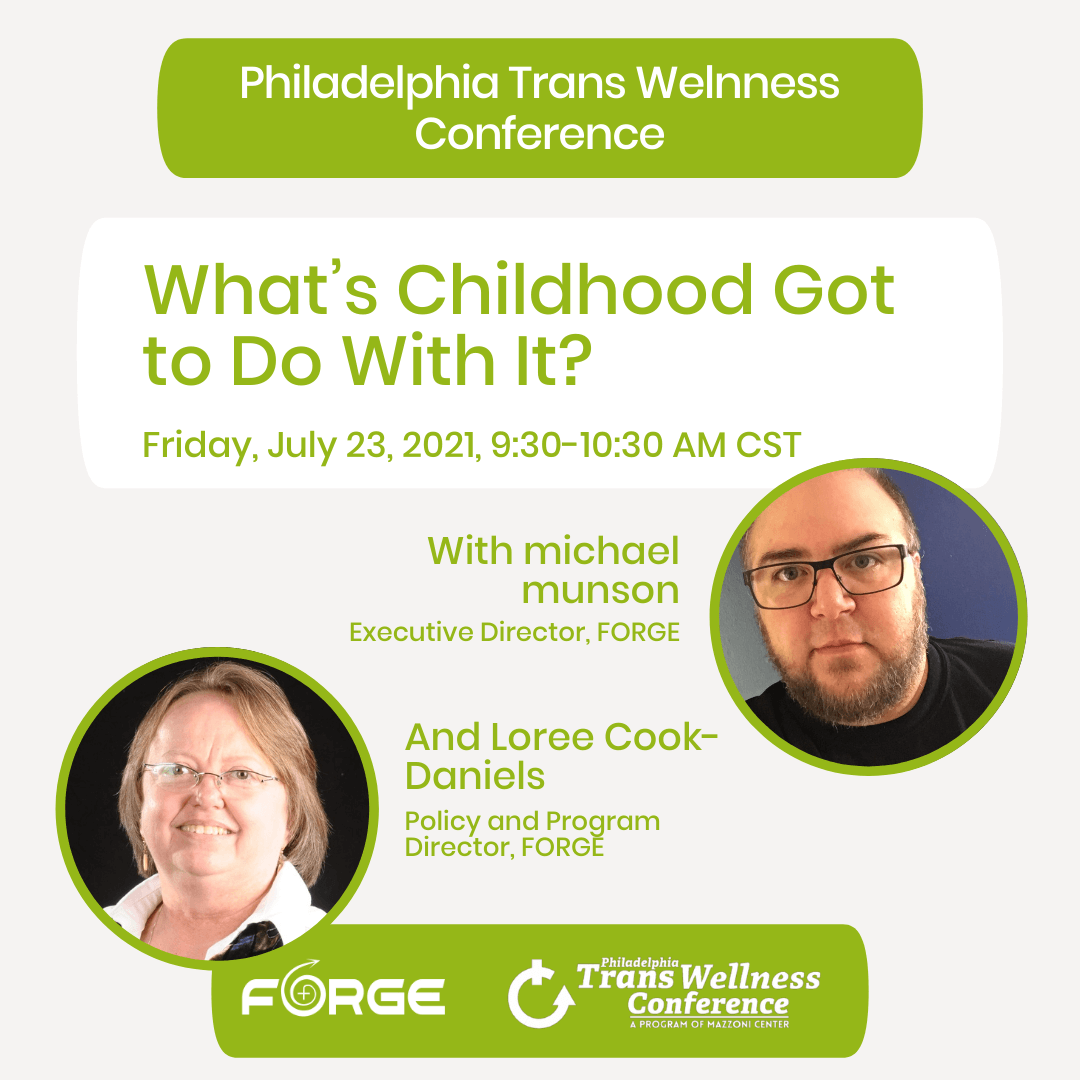What’s Childhood Got to do With It?
A workshop at the Philadelphia Trans Wellness Conference, Behavioral Health Professional Track
More and more people are understanding that many physical and mental health conditions that plague adults actually had their start in Adverse Childhood Experiences (ACEs). As valuable as the ACEs are, they paint an incomplete picture for trans individuals. This workshop explores 8 more trans-specific ACEs and traces them to the health disparities frequently seen in trans and non-binary adults. The pathways between ACEs and health disparities will be detailed, as well as mapping out where interventions may help.
Learning Objectives
At the end of the workshop, attendees will be able to:
1. Name at least two Adverse Childhood Experiences that are specific to transgender/non-binary individuals.
2. Explain some of the steps by which Adverse Childhood Experiences lead to health disparities.
3. Name at least three interventions that can be used to help lower the health consequences (disparities) for transgender/non-binary individuals.
Target Audience
Health care and mental health professionals with at least an intermediate level of experience with transgender/non-binary individuals.
Citations
Harris, Nadine Burke, M.D. (2018) The Deepest Well: Healing the Long-Term Effects of Childhood Adversity. Boston, MA: Houghton Mifflin Harcourt.
Nakazaw, Donna Jackson (2016). Childhood Disrupted: How Your Biography Becomes Your Biology, and How You can Heal. Atria Books.
U.S. Centers for Disease Control and Prevention (n.d.) Adverse Childhood Experiences. https://www.cdc.gov/violenceprevention/aces/index.html
Presenters
Loree Cook-Daniels, Policy and Program Director, FORGE
michael munson, Executive Director, FORGE

